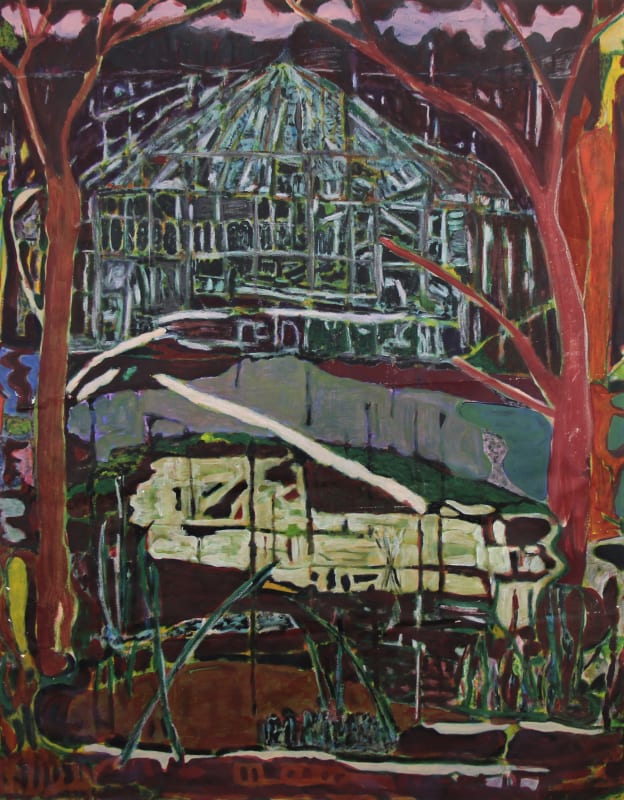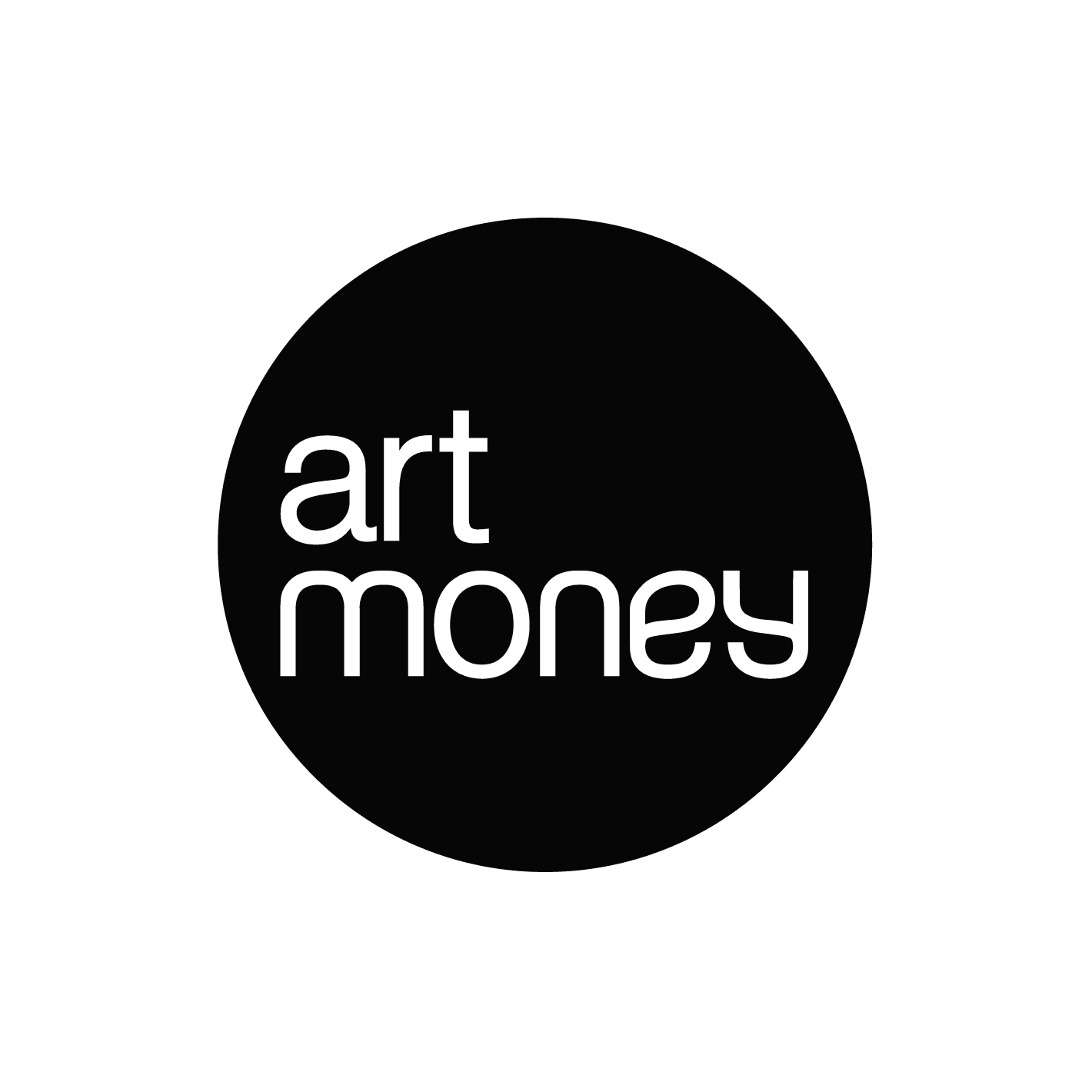PRESS RELEASE
Aleph Contemporary is delighted to present ‘Birdhouse Blues’,
a virtual solo show of recent work by GORDON DALTON
1st - 15th May, 2020.
Hope among the cynicism.
What do we see when we approach the painting “Birdhouse Blues” by Gordon Dalton? We find some of the tropes of landscape painting: we look past deciduous trees, through to what seem to be Victorian outbuildings and the empty birdhouse from the title. This structure in the distance is brought forward, partly due to the use of the vertical composition and the portrait aspect ratio of the canvas. Between the trees and the building, space breaks down into a mix of abstracted shapes and stratifying forms that help create a unified plane. When looking at Gordon's work, I find myself drawn to separate elements, checking spaces and shapes, trying to decipher their function and how they affect the painting as a whole.
When attempting to 'read' or place the ideals of traditional landscape onto Gordon's work, the painting claps back, creating an unsteady footing, leaving an unsettling, sometimes eerie or melancholic disposition. In this painting we see distance shortened, the painting almost affronting or overbearing us with painted information over the entirety of the canvas. This maximalist trait immediately makes me want to consider Gordon's practice in an entirely abstract manner, but I am grounded in place in a way reminiscent of works by Pierre Bonnard.
The birdcage referenced in this painting is based on a real place, the now-abandoned birdhouses at Buenos Aires Zoo. Gordon visited the defunct zoo in 2016 during an artist residency in Argentina (URRA www.urraurra.com.ar). Many autobiographical real-life places and objects appear in Gordon's work, sometimes just in suggested form or as half-remembered shadows. These elements are liable to mutate as the painting is created, and visual motifs come in and out of focus. We find elements of the post-industrialised Teesside landscape, plumes of smoke from factories or perhaps cigarettes, empty buildings, waterways man-made and other, birds and wildlife through to bare winter trees. Gordon's earlier work focused heavily on these motifs and, looking back over past work, I see an artist finding his subject and letting it fight with the viewer. These motifs are often laced with the socio-economic baggage that any artist coming out of a working-class background would possess. The paintings were made to be cynical of the art world - they didn't ask to be liked - they asked whether the motifs contained within them are of any worth. Out of this painted cynicism and vitriol, we see an artist who is more internally critical; the cynicism is no longer outward-facing. We see someone who is working with a type of trepidation that comes out of building an admiration for the function of painting, its importance and history.
In ‘Birdhouse Blues’ we see an abstract painting constructed from memory. It is not merely made to articulate a space or place; its elements mutate into forms and shapes that can handle paint, hung upon the surface, the grime of paint shimmering but at other times fractured, craggy and fallible. Paint is smeared, removed, scrubbed and pushed into the grain of the canvas. The application of the paint articulates the subject and the inadequacy of memory appropriately. The half-remembered place is inevitably melancholic. In the studio, remembering and reimagining the world, I immediately think of other artists who worked in a similar fashion, artists like Édouard Vuillard, Walter Sickert or Edvard Munch. The influence of these artists is obvious - we can find references in pallet, texture and subject - but the link I am thinking of is more visceral. When I find a painting engaging it is often because I can feel the artist working, looking, pushing and sometimes failing. I alight at works where the painter is fighting to articulate something. It is this grapple I find present within Gordon’s work. I see a surface worked, pushed and pulled with genuine interest; a slow brawl against inevitable self-doubt and the pull of cynicism.
Liam O'Connor, April 2020


